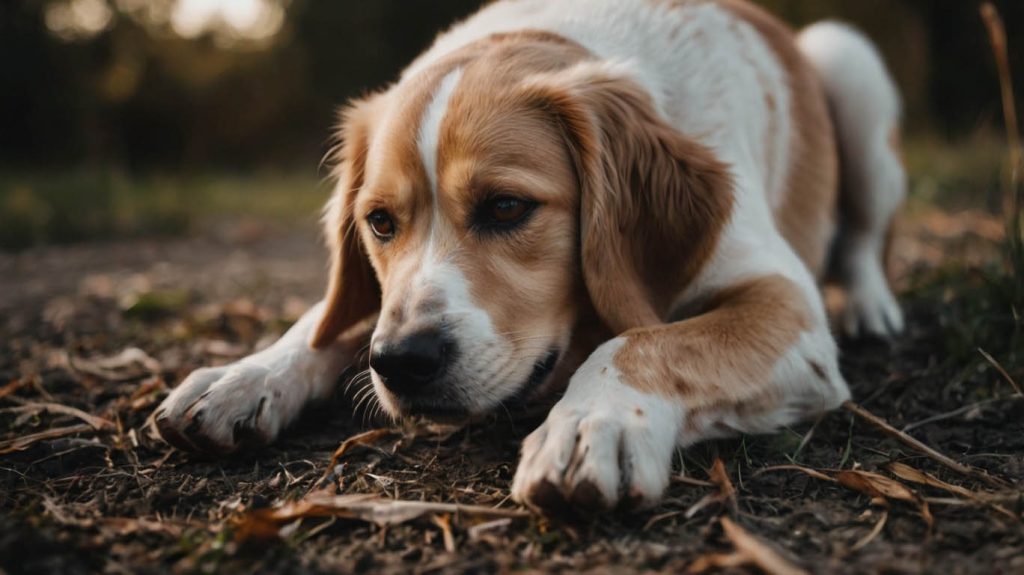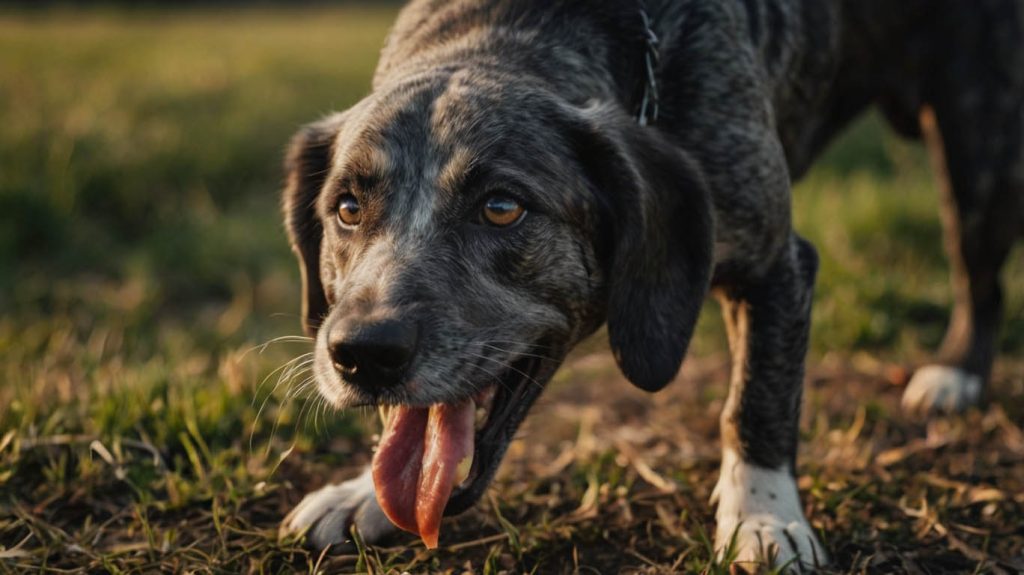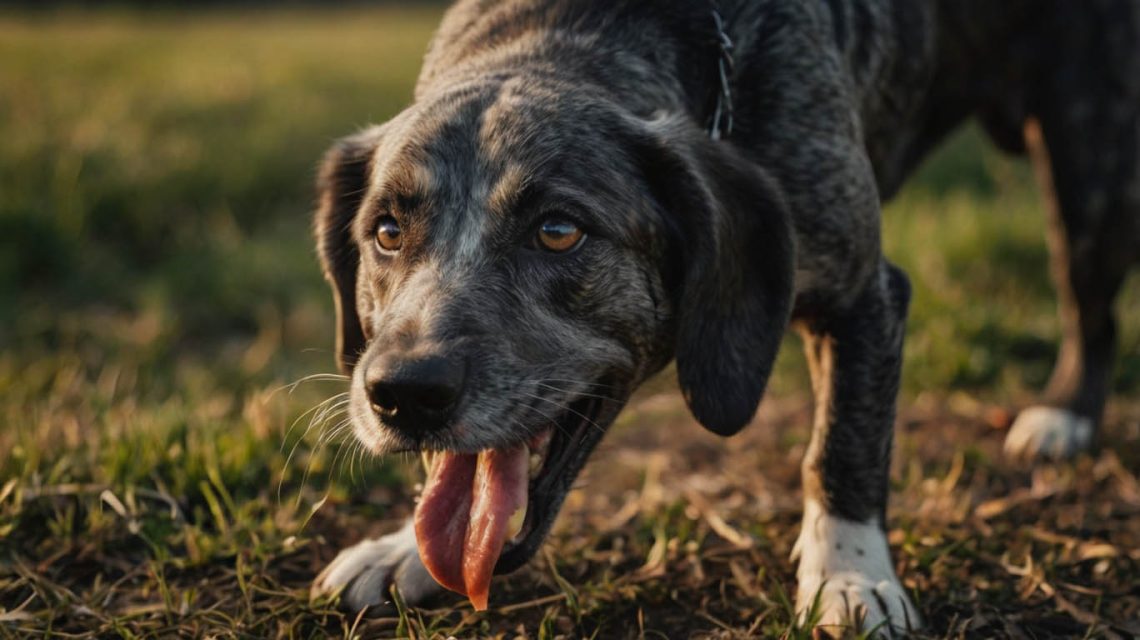Why Is My Dog Licking His Paws Constantly? A Vet-Reviewed Guide
That persistent slurp, slurp, slurp sound can be more than just a minor annoyance; it can be a sign of distress from your furry best friend. If you’ve found yourself searching “why is my dog licking his paws constantly,” you’re not alone. This common behavior is a cry for help, and understanding its root cause is the first step toward providing relief. It’s a perplexing issue for many dog owners, but fortunately, by investigating the potential causes, you can find an effective solution. This comprehensive guide will walk you through the storyline of paw licking, from identifying the underlying reasons to implementing actionable solutions and preventative care.
Unraveling the Mystery: Why Is Your Dog Licking His Paws Constantly?
First and foremost, it’s crucial to understand that a dog licking his paws constantly is rarely a meaningless habit. Instead, it’s a primary communication tool. Your dog can’t tell you his paw is itchy, painful, or that he’s feeling anxious, so he licks. This licking can provide temporary relief or serve as a self-soothing mechanism.
The reasons behind this behavior generally fall into two main categories: medical and behavioral. Distinguishing between them is essential for effective treatment. Consequently, a systematic approach, starting with the most common physical causes, is the best way to solve this puzzle.

The Medical Reasons Why a Dog is Licking His Paws Constantly
Medical issues are, by far, the most frequent culprits behind obsessive paw licking. The discomfort is real, and the licking is a direct response to it. Therefore, your investigation should always begin here.
Allergies: A Common Culprit for a Dog Licking His Paws Constantly
One of the leading causes of a dog licking his paws constantly is allergies. Just like humans, dogs can suffer from allergic reactions that cause intense itching (pruritus), and the paws are a common hotspot.
- Environmental Allergies (Atopy): Pollen, mold spores, dust mites, and grasses can trigger allergic reactions. Since your dog’s paws are in direct contact with these allergens on walks, they often bear the brunt of the irritation.
- Food Allergies: A dog can develop an allergy to an ingredient in their food, often a protein like chicken, beef, or dairy. This typically results in itchy skin, especially on the paws, ears, and belly. Transitioning to a hypoallergenic diet under veterinary guidance can often resolve this.
- Contact Allergies: Although less common, a dog can react to something their paws touch directly, such as carpet cleaning chemicals, lawn fertilizers, or ice-melt products. Consequently, wiping your dog’s paws after every walk can significantly help.
Parasites and Infections: Why Your Dog is Licking His Paws Constantly
Tiny invaders can create a world of misery for your dog’s paws, leading to incessant licking.
- Parasites: Fleas, ticks, and mites (like Demodex or Sarcoptes mites) can bite and burrow into the sensitive skin between the paw pads, causing severe itchiness and inflammation. A consistent, vet-approved flea and tick preventative is your best defense.
- Bacterial and Yeast Infections: The warm, moist environment between your dog’s toes is a perfect breeding ground for bacteria and yeast. You might notice redness, a greasy discharge, or even a distinct “Frito” or “corn chip” smell, which is a telltale sign of a yeast infection. These secondary infections often develop because licking introduces moisture and bacteria, making a minor issue much worse.
Pain or Injury: A Critical Reason a Dog is Licking His Paws Constantly
If the licking is focused on a single paw, pain is a very likely cause. Your dog might be trying to clean a wound or soothe an ache. It’s imperative to conduct a gentle but thorough inspection.
Look for:
- Foreign Objects: A thorn, splinter of wood, piece of glass, or even a sharp pebble could be lodged in the paw pad.
- Cuts or Abrasions: Sharp surfaces can easily cut the delicate pads.
- Broken Toes or Torn Nails: These injuries are extremely painful and require immediate veterinary attention.
- Insect Stings or Bites: A bee sting or spider bite will cause localized swelling and pain.
- Arthritis: In older dogs, arthritis in the joints of the paw or wrist can cause chronic pain, leading to licking as a coping mechanism.
Dermatitis and Dry Skin: The Itchy Truth Behind a Dog Licking His Paws Constantly
Sometimes, the problem is simple dry skin. Just like our hands can get chapped and cracked in dry weather, so can a dog’s paw pads. This can be caused by low humidity (especially from indoor heating in winter), nutritional deficiencies (like a lack of omega-3 fatty acids), or other underlying skin conditions (dermatitis). The resulting itchiness and discomfort directly lead to a dog licking his paws constantly.

Behavioral Triggers: Why a Dog is Licking His Paws Constantly
If your veterinarian has ruled out all medical causes, it’s time to explore behavioral reasons. While less common, these psychological triggers are just as valid and require a different approach.
Anxiety and Stress: How They Lead to a Dog Licking His Paws Constantly
Licking can be a self-soothing behavior, similar to a human nervously biting their nails. A dog experiencing anxiety will lick their paws to calm themselves down.
- Separation Anxiety: Many dogs begin licking obsessively when left alone as a way to cope with the stress.
- Boredom: A dog without enough physical or mental stimulation may resort to licking out of sheer boredom. This repetitive action can release endorphins, making it a mildly rewarding activity.
- Environmental Stressors: Loud noises like thunderstorms or fireworks, a new baby or pet in the house, or a move can all create anxiety that manifests as paw licking.
Obsessive-Compulsive Behaviors (OCD) in Dogs
Occasionally, the act of licking itself becomes the problem. What may have started as a response to a minor medical issue can develop into a compulsive habit that continues long after the original trigger is gone. For a dog licking his paws constantly, this becomes a deeply ingrained routine that is difficult to break without targeted behavioral modification.
Actionable Solutions: How to Stop Your Dog Licking His Paws Constantly
Now that you understand the “why,” it’s time for the “how.” Stopping the licking involves a two-pronged approach: addressing the underlying cause and managing the immediate behavior.
The First Step: A Thorough Paw Inspection at Home
Begin by gently examining your dog’s paws in a well-lit area. Look between the toes and pads for redness, swelling, foreign objects, cuts, or any signs of parasites. Note any odors. This initial check can provide valuable clues for you and your vet.
When to Visit the Vet for a Dog Licking His Paws Constantly
Self-diagnosing can be dangerous. A veterinarian is your most important partner in solving this problem. You should make an appointment if:
- The licking is intense, sudden, or causing injury (raw, red skin).
- Your dog is limping or showing other signs of pain.
- You suspect an infection (bad smell, discharge).
- The behavior persists for more than a few days.
A vet can perform skin scrapes, allergy tests, and other diagnostics to pinpoint the exact cause, ensuring your dog licking his paws constantly gets the right treatment from the start.
At-Home Care and Soothing Remedies
While waiting for your vet appointment, or as part of a vet-approved treatment plan, you can provide some relief at home.
- Paw Soaks: Soaking the paws in a cool solution of water and Epsom salts can reduce inflammation.
- Wipe Paws After Walks: Use a damp cloth or hypoallergenic pet wipes to remove potential allergens and irritants after being outside.
- Use an E-Collar (Cone): While no one loves the “cone of shame,” it is the most effective way to physically prevent licking and allow the paws to heal.
- Apply a Soothing Balm: A vet-approved, dog-safe paw balm can help moisturize dry, cracked pads. Never use human lotions, as they can be toxic if ingested.
Preventing the Problem: Keeping Paws Healthy Long-Term
Prevention is always better than a cure. Once you’ve addressed the immediate issue, you can take steps to prevent your dog licking his paws constantly in the future.
- Routine Paw Checks: Make paw inspection a regular part of your grooming routine.
- Proper Nutrition: Feed a high-quality diet rich in omega-3 and omega-6 fatty acids to support healthy skin.
- Mental and Physical Stimulation: A tired, happy dog is less likely to be a bored or anxious dog. Ensure plenty of walks, playtime, and puzzle toys.
- Consistent Parasite Control: Stay on schedule with your vet-recommended flea, tick, and mite prevention.
Conclusion: Your Path to a Happier, Healthier Dog
Seeing your dog licking his paws constantly is worrying, but it is a solvable problem. By methodically working through the potential medical and behavioral causes, partnering with your veterinarian, and providing consistent care, you can bring an end to the obsessive licking. Remember, this behavior is a symptom, and by treating the root cause, you not only stop the licking but also vastly improve your dog’s overall quality of life.


